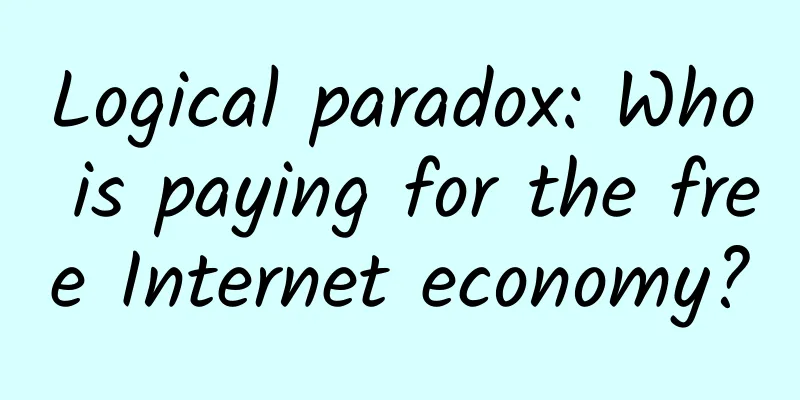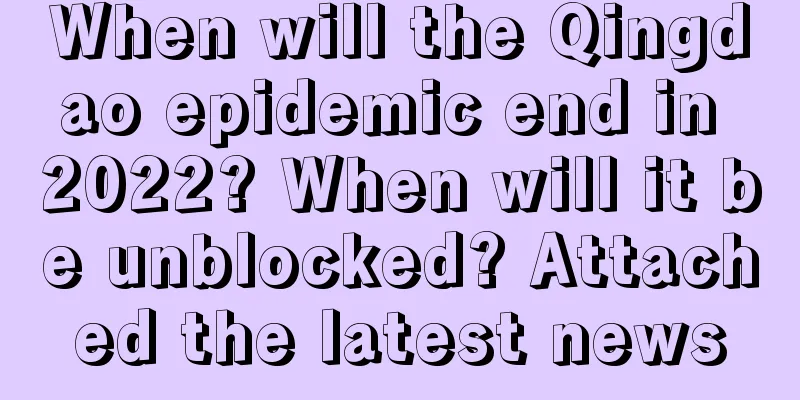|
Around 2014, the national application WeChat was rumored to be "charged". Because of the seriousness of the matter, telecom, Internet, social, and psychologists consulted and devised their own strategies to deconstruct the rationality of WeChat's charging and the consequences it would bring. Some radical netizens simply said directly: once WeChat charges, they will have more reasons to use Momo. Everyone knows what happened later. WeChat did not charge, and surprisingly, after the "charging scandal", the growth momentum of WeChat users has become even stronger. Everyone thinks that being able to use WeChat for free is a special bargain. Therefore, consumers around the world still use WeChat for free for basic communications such as text and voice, and still send selfies in Moments without regard for the consequences, and comment on the world like experts.
WeChat's "charge gate" is a microcosm of China's current Internet economy. The author believes that since operators are charging for SMS, WeChat can theoretically also charge, but the way for Chinese Internet companies to survive is to earn users by being "free". With users and traffic, everything is easy, just as free QQ helped Ma Huateng build the Tencent empire, free news and search made Baidu and major portals successful, and free anti-virus software made 360 bigger and bigger... These free business models have become a tradition in the Internet field, or in other words, these giants are forcing latecomers to be "free". After all, there are too many homogeneous services in China's Internet. Whoever charges first will disappear first. Moreover, this free economy is radiating more and more energy, from the Internet field to the telecommunications and terminal fields. Some Chinese mobile phone manufacturers have won the hearts of users and temporarily won the favor of capital by relying on the slogan of "not relying on hardware to make money".
But the essence of business logic is to make money. Even some old monks in temples are vying for incense money, not to mention those Internet CEOs who come from a business background. Few of them are interested in changing the world. This logical flaw is causing China's Internet to fall into a paradoxical development. How to balance the relationship between free and paid has become an urgent issue that the Internet, telecommunications, and even the entire terminal market need to consider.
The free lunch we had together in those years <br /> As mentioned above, after the misunderstanding, WeChat will continue to be free for everyone to use. In fact, in the foreseeable future, WeChat's existing basic services, text, voice and video communication functions will continue to be free. Moreover, it can also be concluded that, just like its brother QQ, WeChat's hundreds of millions of user resources will definitely bring a lot of money to Tencent and the entire Chinese Internet to a certain extent. For example, the strong connection established by WeChat can offset the distrust between merchants and consumers to a certain extent. After all, it is not a big deal to cheat acquaintances. When the "acquaintance business" model is formed, it will naturally derive brands that can directly create profits, just as Alibaba derived Tmall and other brands from the free Taobao. Now, who dares to say that Jack Ma is free?
In China's Internet sector, WeChat is not the only one that offers free services. In fact, our generation of Internet users has a deep-rooted belief that some things on the Internet should be free, which leads us to use free resources without restraint.
In the past 20 years, consumers have enjoyed a lot of free bytes. First, the news, reports, comments and related materials on the Internet are all free. In fact, since the Internet came into being, I have no interest in subscribing to newspapers. After all, I only need to spend some time to browse any news I want, even gossip and lace; second, Internet tool software has also quietly become free. On the one hand, it has benefited from the promotion of piracy technology, and on the other hand, some software is born for the "free economy". Typical representatives include WeChat and QQ mentioned above. It is estimated that 90% of Chinese users have never thought about paying for Windows and Office. More ethical users only spend 5 yuan to buy an installation disk, but they can't help asking: Boss, is this genuine? As the energy radiated by the free economy continues to expand, the telecommunications and terminal fields have also begun their own "semi-free" era. Take telecom operators for example. Although they occasionally complain about expensive charges, to be fair, the data charges alone are already very low. If the original charging standards are followed, no one would like smartphones. Moreover, I believe that with the official release of the Prime Minister's opinions, telecom operators will inevitably consider making basic services such as voice and text free of charge. In addition, the terminal field has also ushered in its own free era. Xiaomi has been telling users enthusiastically: We don't make money from hardware, we sell services. It is this "losing money to gain publicity" business logic that has allowed many people in third- and fourth-tier cities and even in the vast rural and mountainous areas to use smartphones.
Nowadays, the storm of free economy is expanding, and more and more fields are being involved. In this storm, consumers seem to get more and more benefits, but after eating so many free meals, will we really not have indigestion? In fact, we may be experiencing the troubles of free things without knowing it. What's more, the essence of making money in business logic will never change. Specifically, the situation of China's Internet should be "the wool comes from the dog, and the pig pays".
Logical paradox: who is paying for the free economy?
In the ancient commercial society, merchants began to use the free gift of a product to drive the sales of another product. This marketing method reached its peak in the 20th century. "Free" began to slowly promote a consumption revolution and influenced the business trend for hundreds of years. Today's Chinese Internet is also affected by this business model and has taken it to the extreme. In the world, no business model can attract users' attention more than "free", and in the era of Internet staking, attention is the most scarce resource. This is why free has always become a marketing tool in the competition of Chinese Internet. In addition, the free economy can be so popular in the Chinese Internet, which is also closely related to China's unique culture. The whole world knows that Chinese people like to take advantage of small bargains. Our aunts can even go to New York to buy iPhone6 Plus. Some people even take risks and carry 36 smuggled mobile phones through customs. As for Chinese tourists, they even snatched all the toilet lids in Japan, which is even more incredible. In short, the free economy has a special survival soil in China, but we are curious about how long it can last?
Let's go back to the free Internet economy. As mentioned above, the business logic of China's Internet should be that the wool comes from the dog and the pig pays. In such a profit chain, who is the ultimate pig head?
In those years, we ate the free lunch together, but we did not go bankrupt because of the free resources. Instead, we made a lot of money by using the derived added value. Portal websites provide free news, reports and search engines, and use user advantages to attract advertisers to pay. So, as you can see, there are always some advertisements selling clothes and shoes next to the free sports news; next to the free entertainment news, there are aphrodisiac advertisements such as "How men can satisfy their wives"; next to the free technology news, there are sensational and charming speeches by success gurus, calling on people to join the CEO training class, and in 2 months you will become Tim Cook who likes women... These advertisements mainly need to pay website advertising fees to be on the homepage, and this part of the expenses will be passed on to consumers, that is, tens of millions of netizens. After all, Every netizen needs daily necessities, and some special groups need to take medicine frequently to cope with various nighttime activities. In other words, those netizens who browse free news are real idiots. If the advertising model is still a mild way to attract money, then some tempting consumption is naked and straightforward, using the free 5 minutes as bait to constantly tease the user's nerves and make them continue to pay for the next service. This is true for beautiful women chatting, wonderful videos, and dating websites, not to mention those upgraded online games. When consumers spend a lot of money to buy props, paying for their own free resources is just a matter of convenience. In addition, another form of the free model is to use free for free. For example, some encyclopedia websites use the folk wisdom of netizens. They are truly from the people and used for the people. However, like the tax bureau, they will not return all the free resources they collect to the people.
This is the Nth time I have mentioned this sentence: the essence of business logic is to make money. There is no such thing as a free lunch. I prefer to regard the current free economy of China's Internet as a special historical period. This period may last for a long time, 50 years or even 100 years. When users and the market are stable, this free business model will inevitably disappear. What's more, we are already suffering from the trouble of "free".
In the entire business logic of the free economy, netizens have unfortunately become the ultimate paying pigs, and they are completely unaware and never get tired of it. Perhaps, this statement is a bit far-fetched. After all, a large number of netizens do not play games, do not buy goods, do not make progress, and refuse all projects related to payment. But even so, this group will suffer from the disaster brought by the free economy, because free, the quality is bound to decline. The accuracy, depth, and authenticity of news reports have become questionable in the free era. There are title parties everywhere, and the secret recipes provided by health masters cannot be trusted. Every time we surf the Internet, we have to spend double the energy, on the one hand to obtain the knowledge we want, and on the other hand to spend energy to distinguish between true and false, so tired. The author suggests that with the end of the Internet's horse-racing enclosure, giants should accelerate the arrival of China's Internet paid economy, strive to cultivate consumers' payment habits, and guide them from the perspectives of technology, culture and system. At the same time, they should improve the corresponding service quality. After all, the healthy business logic has never been "I am free, I exist", but "I provide better services, so I charge higher". As a winner of Toutiao's Qingyun Plan and Baijiahao's Bai+ Plan, the 2019 Baidu Digital Author of the Year, the Baijiahao's Most Popular Author in the Technology Field, the 2019 Sogou Technology and Culture Author, and the 2021 Baijiahao Quarterly Influential Creator, he has won many awards, including the 2013 Sohu Best Industry Media Person, the 2015 China New Media Entrepreneurship Competition Beijing Third Place, the 2015 Guangmang Experience Award, the 2015 China New Media Entrepreneurship Competition Finals Third Place, and the 2018 Baidu Dynamic Annual Powerful Celebrity. |










